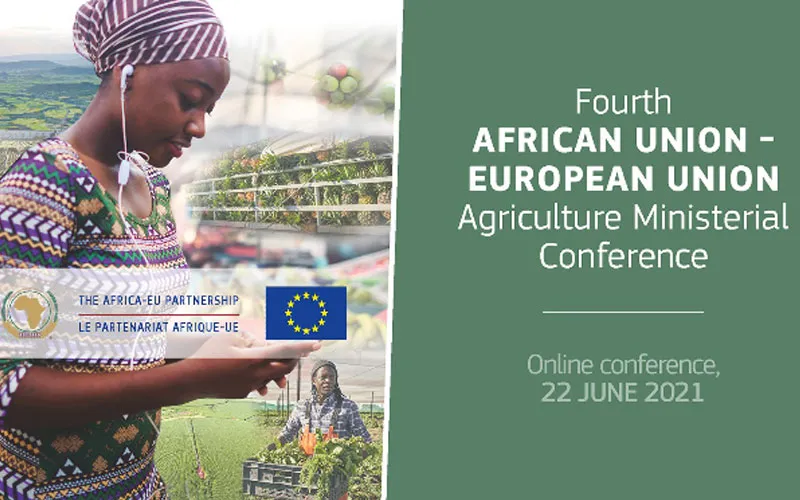“These HHPs have been proven to be mutagenic, carcinogenic and cause endocrine and reproductive disorders. Further, most have been found to be highly toxic to pollinators like bees and aquatic animals,” Ms. Maina says.
She adds, “These toxic pesticides are threatening the health of farmers, farm workers and consumers, and globally have caused 385 million unintended acute pesticides poisoning in 2019.”
“When the Ministers discuss increasing agribusiness, food safety, and improving environmental sustainability, are they ensuring that European companies are not exporting highly hazardous chemical pesticides to Africa that are banned from sale in Europe? And that priority is given to African governments effectively regulating and prohibiting toxic pesticide use?” the official of Biosafety Association of Kenya poses.
She goes on to say, “There must be an end to pesticide poisoning whether working on farms or eating the produce on our plates.”
The Kenyan official says that in the East African country, for instance, the volume of imported insecticides, herbicides and fungicides doubled within four years from 6,400 tonnes in 2015 to 15,600 tonnes in 2018, with a growth rate of 144 percent.
(Story continues below)
She says, in reference to the worrying statistics, “There is an urgent need to stop any trade of HHC, and to inquire into this illegitimate trade and put it high on the agenda in the African European partnership to work towards preventing any harm done to African people and their environment.”
On his part, Dr. Million Belay, the General Coordinator of the Alliance for Food Sovereignty in Africa (AFSA) decried the commercialization of land in Africa countries, a trend he says robs future generations.
“Stop the commoditization of Africa’s natural resources, bought and sold by multinational corporations and local elites,” Dr. Belays said, and added, “Future generations need enough productive land and living soil to nourish and provide livelihoods for their families and descendants, and maintain their cultural integrity.”
AFSA brings together small-scale farmers, pastoralists, fishers, indigenous peoples, faith communities, consumers, women and young people from across Africa to create a united voice for food sovereignty.
Dr. Belay who also serves as a member of the International Panel of Experts on Sustainable Food Systems (IPES-Food) notes that food is revered in most African communities, and discourages multinationals from over-commercializing it.
“In Africa, food is a basic human right, not a commodity in the hands of a select few who determine prices through their food industries. Food defines our culture and heritage; a source of nutrition and health, a medicine, a ritual, a celebration,” he said.
He calls upon European and African policymakers to accelerate the transformation to sustainable food systems through supportive policies and financial incentives that protect and enhance food producers’ access to land, seeds, water, credit, and local markets.
Addressing the issue of land rights in African countries, Massa Kone, spokesperson of the CGLTE-OA highlighted the rise in land grabbing, which he equated to an excessive violation of human rights under the guise of investments.
The aim of CGLTE WA is to support struggles for land rights and to ensure that collective rights are respected.
Mr. Kone provides the example of the Segou region of Mali where 20,000 hectares of land were granted to an economic operator under the guise of investment in agriculture supported by the African Development Bank (ADB).
He says that of the 20,000 hectares, more than 800 hectares were dispossessed from the communities in inhumane conditions that led to imprisonment, deaths and several people leaving the countryside.
The CGLTE-OA official notes that after the land was developed and factories constructed, people in surrounding villages are regularly sickened by the chemicals used in the factories and that the ecosystem of the area is in danger of disappearing.
“This year, these villages have been the victims of floods never seen before in their history,” Mr. Kone told participants at the June 21 conference.
In her statement on women land rights, Lungisa Huna, Co-Director at Rural Women’s Assembly (RWA) condemned the perception of land as an “economic factor.”
Ms. Huna called on Africans to say no to the commodification of land that she said converts what is by tradition a public common good into an asset that only elites and rich can afford.
She said that at RWA, a regional movement with over 100,000 rural women members in ten countries within the Southern African Development Community (SADC) region, land is considered as “a place of belonging, as a common territory, as our identity, our heritage and most importantly as life.”
The social and human rights activist called on governments across the continent to provide subsidies that support women’s land rights and agricultural rights prioritizing food production.
“Women must have the same land and decision-making rights, under community control, not controlled by chiefs alone,” Ms. Huna says, and adds, “The AU, EU and SADC’s commitments to gender equality must not result in ‘paper policies’ and ‘paper rights’, but have to be implemented.”
Agnes Aineah is a Kenyan journalist with a background in digital and newspaper reporting. She holds a Master of Arts in Digital Journalism from the Aga Khan University, Graduate School of Media and Communications and a Bachelor's Degree in Linguistics, Media and Communications from Kenya's Moi University. Agnes currently serves as a journalist for ACI Africa.








